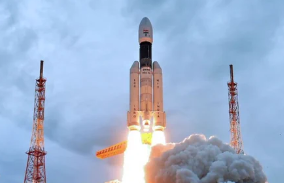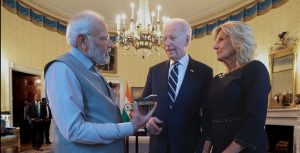Vijay Rupani declared Gujarat to be a “vegetarian state” in his 2017 Budget speech. The announcement came a few months before the Assembly elections that year, and came as his government strengthened the cow slaughter law, which now carries a life sentence for violators.
After the lockdown forced many restaurants in cities like Ahmedabad to close, some that reopened removed the red dot from their menus, while others became cloud kitchens, owing to economics.
Also Read | Five foods to avoid during winters for a healthy body
The events of the last two weeks, on the other hand, demonstrate how unlikely it is that meat-eating will be outlawed in the state. Municipal corporations in four major cities — Rajkot, Vadodara, Bhavnagar, and Ahmedabad — have declared a crackdown on carts selling non-vegetarian food on the streets, according to BJP officials. C R Paatil, the state BJP president, had to stifle the city unit leaders by insisting that there was no ban on meat consumption and that people had the “right” to eat whatever they wanted.
Also Read | Add arbi or taro root to your diet for these multiple benefits
When Gujarat was still recovering from the previous year’s riots, then-BJP MLA Bhavin Sheth of Ahmedabad’s Ellisbridge constituency, under the watchful eye of then-Minister of State for Home Affairs Amit Shah (now Union Home Minister), forced non-vegetarian food carts off the street outside IIM-A, which was part of his constituency. Those food carts are yet to return. Sheth is a Jain, a minority community with powerful political clout in Ahmedabad.
Also Read | Swachh Survekshan 2021: How Indore became India’s cleanest city
Gujarat’s image of being a vegetarian state comes from Ahmedabad, where even pizza and vadapav are available in categories like ‘Jain’ (no onion, garlic, or tubers) and ‘Swaminaryan’ (no onion, garlic, or tubers), the latter owing to the Swaminaryan sect’s large following.
Gujarat’s marketing has also been solely focused on its vegetarian cuisine. The recipes for the spicy mutton curry, prawns, and fried paaplet (pomfret) that can be found in private kitchens or innocuous non-vegetarian dhabas along the state highway are mostly kept a secret.
Also Read | Swachh Survekshan 2021: Indore declared cleanest city in India for 5th time in a row
Gujarat’s reputation as a vegetarian state, according to sociologists and historians, is a myth. As per the 2014 Sample Registration Survey, Gujarat has a meat-eating population of 40%, which is higher than Punjab and Rajasthan. Not only Muslims, Christians, and Parsis, but also OBCs, Dalits, and Tribals are among them.
When the BJP has planned a deliberate outreach to OBCs, with Prime Minister Narendra Modi’s new ministry introducing a number of OBC ministers, and when Uttar Pradesh is going to polls, the party brass has come to the realisation that raising the ante on meat-eaters would throw the election math off. The party needed to make the right noises to assert that what happened in Gujarat was not a reflection of the state’s overall mindset as the number of Gujaratis in the central decision-making dispensation grew.
It may also have occurred to the party’s leadership that criminalising meat consumption was different from criminalising cow slaughter or drinking alcohol. While the latter two positions may appeal to Hindus and pro-prohibition voters, declaring a meat ban could cost the BJP a significant number of votes.






